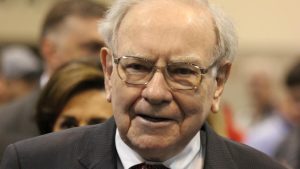How much do you need in an ISA to target a £777 monthly passive income?


FTSE 100 shares are a brilliant way to build a high and rising passive income for retirement. They offer the prospect of earning money without raising much of a sweat. There are risks though.
How much of a second income investors receive will depend on a string of factors, from the type of shares they choose to how long they hold them.
Build long-term income
Let’s say an investor is aiming to generate £777 each month, which works out at £9,324 a year. Using the 4% rule, which suggests investors can sustainably withdraw 4% of their portfolio annually without eating into their capital too much, theyâd need around £233,000 invested to hit that target.
Some FTSE 100 shares yield as much as 8% or 9%, but these tend to be at the high end of the risk scale, because companies need to generate a lot of cash to achieve that. So investors shouldn’t purely target high yielders. Before choosing a stock, consider whether the business is likely to maintain or grow its payments over time. Diversifying across multiple holdings reduces the risk that one disappointing payout will derail the overall plan.
By investing regularly in a Stocks and Shares ISA over the years, dividends and share price growth compound, enhancing the portfolio’s passive income potential. Even modest yields can grow into a meaningful sum if given enough years. Patience, discipline and a long-term view are essential.
HSBC is a top FTSE 100 dividend stock
Picking the right shares is vital, but nobody gets it right every time. Even the top companies can take investors by surprise.
Take HSBC Holdings (LSE: HSBA). Shares in the FTSE 100 bank tumbled 6% on Thursday (9 October), after it announced the planned £10.7bn acquisition of Hang Seng Bank to consolidate its presence in Hong Kong. The dip may have shaken some existing shareholders, but others may view it as a buying opportunity.
HSBC shares have had a brilliant run, rising around 40% over the last year and 220% over five years, with dividends on top. The trailing yield is a pretty meaty 5.1%, and that’s forecast to hit 5.5% in 2026. The board has also been very generous with share buybacks, although that programme will now pause to fund the Hang Seng deal. That largely explains the share price drop.
Long-term rewards
Even so, I think HSBC looks well worth considering right now. The shares appear good value, trading on a price-to-earnings ratio of just over 10. However, tensions between the US and China have flared up again, and given HSBCâs heavy exposure to Asia, it will be caught in the crossfire.
Investors also worry about an AI bubble and the risk of a wider stock market correction, which would leave few shares unscathed. Those concerned might prefer to feed money in gradually rather than dive in headfirst
It may also make sense to build a balanced portfolio of around 15 to 20 dividend shares to spread risk. Then crucially, hold them for the long term. The real rewards of investing donât come overnight, but from sticking with the plan for years. With luck, when retirement comes, that second income will roll in nicely.
The post How much do you need in an ISA to target a £777 monthly passive income? appeared first on The Motley Fool UK.
Should you invest £1,000 in HSBC Holdings right now?
When investing expert Mark Rogers has a stock tip, it can pay to listen. After all, the flagship Motley Fool Share Advisor newsletter he has run for nearly a decade has provided thousands of paying members with top stock recommendations from the UK and US markets.
And right now, Mark thinks there are 6 standout stocks that investors should consider buying. Want to see if HSBC Holdings made the list?
More reading
- The HSBC share price isn’t having a good day, but I don’t think shareholders should be alarmed
- HSBC shares sink 6% on Hong Kong news! Is this a dip-buying opportunity?
- 3 UK shares to consider this month as major brokers raise their price targets
- The FTSE 100 index just made history!
- Why the HSBC share price spiked 10% last month
HSBC Holdings is an advertising partner of Motley Fool Money. Harvey Jones has no position in any of the shares mentioned. The Motley Fool UK has recommended HSBC Holdings. Views expressed on the companies mentioned in this article are those of the writer and therefore may differ from the official recommendations we make in our subscription services such as Share Advisor, Hidden Winners and Pro. Here at The Motley Fool we believe that considering a diverse range of insights makes us better investors.





